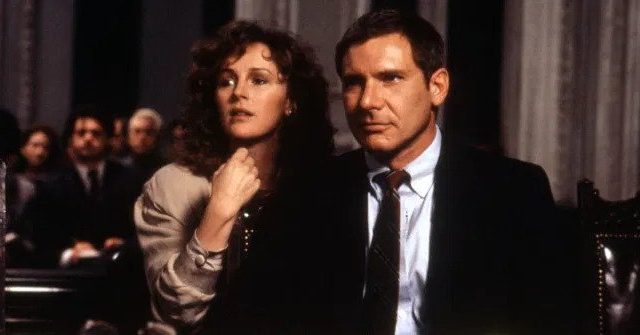Harrison Ford is the cipher at the heart of Alan J. Pakula’s Presumed Innocent, a legal thriller that makes the most of its protagonist’s solemn difficulty. Ford is interesting casting for the role–reverse-Kubrickian, like he’s been cast to carry over his usual star traits and previous on-screen personae specifically in a way that leaves them elusive and obscured. His Rusty Sabich isn’t charming or debonair or dashing. He’s almost-but-not-quite ordinary, instead: a powerful man with the volume turned down. What would he be capable of if it were turned up? We sense the answer here isn’t exactly as simple as “being Harrison Ford.” Either way, his stillness works perfectly for the film, which spends so much time on what Rusty didn’t do that it’s impossible not to wonder what he would do, and the answer is a powerful bit of payoff.
But while Ford is good in Presumed Innocent, he’s not even the best part. His presence is rounded out by a supporting cast that includes Brian Dennehy, Raul Julia, Bonnie Bedelia, Paul Winfield, Greta Scacchi, and John Spencer, all of whom are working at the top of their game here, with moments alternately noir and Shakespearean. They also work as local power players, and we don’t run into the U.S. House of Cards problem where they all turn out to be motivated by more or less the same thing. They create a world, and at the end of Presumed Innocent, we believe that world will go on. And more than anything else about the movie, that’s what stands out to me: an incredible density of narrative and character, like you could pull a dozen different stories out of this without breaking a sweat. It doesn’t surprise me that Scott Turow, who wrote the original book, apparently made a start on doing just that.

